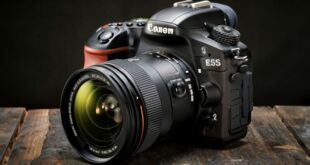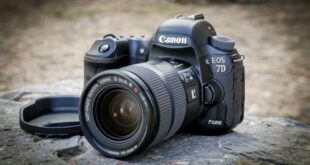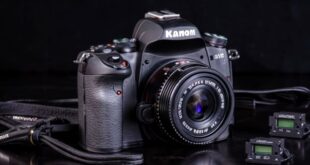The Ultimate Showdown: DSLR or Dedicated Astro Camera?
🌟 Are you fascinated by the mysteries of the universe and eager to capture stunning astrophotography? Look no further! In this article, we will delve into the age-old debate of DSLR vs dedicated astro camera. Whether you are a beginner or a seasoned astrophotographer, this comprehensive guide will help you decide which device suits your needs best. So, let’s embark on an astronomical journey and explore the pros and cons of each option!
Understanding the Basics
🌌 Before we dive into the details, let’s take a moment to understand the basics. A DSLR camera, short for Digital Single-Lens Reflex, is a versatile tool widely used in photography. On the other hand, a dedicated astro camera is specifically designed for astrophotography, offering unique features tailored to capture the wonders of the night sky.
Introduction
🔭 Our celestial voyage starts with understanding the key components that differentiate a DSLR camera from a dedicated astro camera. Let’s explore these aspects in detail:
1. Sensor Sensitivity
✨ The sensor sensitivity of a camera is crucial when it comes to capturing the faintest celestial objects. DSLR cameras often have larger sensors with higher sensitivity, making them capable of capturing more light. However, dedicated astro cameras usually feature even larger sensors, purpose-built to excel in low light conditions.
2. Cooling Capabilities
❄️ Cooling is essential in astrophotography to minimize the noise caused by heat buildup in the camera sensor. While some DSLR models offer rudimentary cooling mechanisms, dedicated astro cameras go a step further, incorporating advanced cooling systems for optimal image quality.
3. Long Exposure Capability
⏱️ Long exposure photography is a fundamental technique in capturing celestial phenomena. DSLRs typically have shutter speeds limited to a few minutes, while dedicated astro cameras can sustain exposures for extended durations, ranging from minutes to hours, ideal for capturing stunning deep-sky images.
4. Noise Reduction
🔇 Noise reduction is vital to ensure crystal-clear astrophotography results. Dedicated astro cameras employ sophisticated noise reduction algorithms, minimizing unwanted artifacts in long-exposure images. While DSLRs offer noise reduction features, they may not match the capabilities of dedicated astro cameras in this regard.
5. Software Integration
📲 Efficient software integration is a key advantage of dedicated astro cameras. These cameras are often accompanied by specialized software that enables seamless control, image stacking, and post-processing. Although DSLRs can be controlled remotely, dedicated astro cameras have the upper hand in terms of software tailored specifically for astrophotography.
6. Cost Considerations
💲 Budget plays a vital role in selecting the right equipment. DSLR cameras, being more versatile, can serve multiple purposes beyond astrophotography. On the other hand, dedicated astro cameras are precision tools designed solely for capturing celestial wonders, making them more expensive but offering unparalleled performance in the realm of astrophotography.
7. Learning Curve
📚 The learning curve is another factor to consider. DSLR cameras, being widely used in various photography genres, have vast resources and tutorials available, making the learning process more accessible. Dedicated astro cameras require a steeper learning curve due to their specialized nature, but the breathtaking results make the effort worthwhile for avid astrophotographers.
📊 DSLR vs Dedicated Astro Camera: A Detailed Comparison
| Feature | DSLR | Dedicated Astro Camera |
|---|---|---|
| Sensor Sensitivity | High sensitivity; ideal for general photography and astrophotography | Exceptional sensitivity; optimized for low light conditions |
| Cooling Capabilities | Basic cooling mechanisms | Advanced cooling systems for noise reduction |
| Long Exposure Capability | Limited to a few minutes | Extended exposure durations (minutes to hours) |
| Noise Reduction | Effective noise reduction features | Sophisticated algorithms for superior noise reduction in long exposures |
| Software Integration | Various software options available for astrophotography | Specialized software tailored for seamless astrophotography control and processing |
| Cost | Relatively lower cost; versatile for other photography genres | Higher cost; precision tool solely designed for astrophotography |
| Learning Curve | Widely supported by vast resources and tutorials | Specialized knowledge required; steeper learning curve |
📝 Frequently Asked Questions (FAQ)
1. Which camera is better for astrophotography?
When it comes to astrophotography, the choice depends on your needs and budget. A dedicated astro camera offers unmatched performance but comes at a higher cost, while a DSLR provides versatility for other genres as well.
2. Can I use a DSLR camera for astrophotography?
Absolutely! DSLR cameras are a popular choice for astrophotography due to their larger sensors and wide availability. With the right accessories and techniques, you can capture breathtaking images of the night sky.
3. Do dedicated astro cameras produce better image quality?
Dedicated astro cameras are designed to excel in low light conditions, offering superior image quality and advanced noise reduction algorithms. However, the final output also depends on factors like the skill of the photographer and post-processing techniques.
4. Are dedicated astro cameras worth the investment?
If astrophotography is your passion, investing in a dedicated astro camera can take your images to the next level. These cameras offer advanced features specifically designed for capturing celestial wonders, ensuring unparalleled performance and image quality.
5. Can I achieve deep-sky imaging with a DSLR camera?
While DSLRs can capture stunning images of celestial objects, dedicated astro cameras with their cooling capabilities and extended exposure durations are specifically optimized for deep-sky imaging. However, with the right techniques and post-processing, DSLRs can still produce remarkable results.
6. Is it necessary to cool the camera sensor for astrophotography?
Cooling the camera sensor helps reduce noise, resulting in cleaner astrophotography images. While some DSLR models offer basic cooling mechanisms, dedicated astro cameras have more advanced cooling systems specifically designed to keep the sensor at optimal temperatures during long exposures.
7. Can I control a DSLR camera remotely for astrophotography?
Yes, many DSLR cameras offer remote control capabilities, allowing you to adjust settings and capture images wirelessly. However, dedicated astro cameras often come with specialized software that offers seamless control and enhanced features tailored for astrophotography.
8. Which camera is better suited for wide-field astrophotography?
Wide-field astrophotography, capturing expansive views of the night sky, can be accomplished with both DSLRs and dedicated astro cameras. DSLRs with wide-angle lenses are popular for this genre, but dedicated astro cameras with their advanced noise reduction and long-exposure capabilities can also produce exceptional wide-field images.
9. Can I use filters with both DSLRs and dedicated astro cameras?
Yes, filters are crucial in astrophotography to enhance specific details or block unwanted light. Both DSLRs and dedicated astro cameras can be used with filters, allowing you to customize and improve your astrophotography results.
10. Are there any disadvantages to using a dedicated astro camera?
One major disadvantage of dedicated astro cameras is their higher cost compared to DSLRs. Additionally, their specialized nature and steep learning curve may require more effort to master. However, for avid astrophotographers, the undeniable advantages outweigh these considerations.
11. Can I use my DSLR lenses with a dedicated astro camera?
Most dedicated astro cameras are compatible with DSLR lenses, allowing you to utilize your existing collection. However, some astro cameras may require specific adapters or accessories for seamless compatibility.
12. Which camera is better for planetary astrophotography?
Planetary astrophotography, capturing details of planets in our solar system, benefits from high frame rates and precise focusing capabilities. While DSLRs can produce excellent planetary images, dedicated astro cameras with their specialized features are often preferred for this genre.
13. Can I achieve professional-level astrophotography results with a DSLR camera?
Absolutely! DSLR cameras have been instrumental in producing awe-inspiring astrophotography images for both amateur and professional photographers. With the right techniques, accessories, and post-processing, DSLRs can capture stunning celestial wonders.
🔚 Conclusion: Unleash Your Astrophotography Potential!
🚀 The debate between DSLR and dedicated astro cameras will continue indefinitely, as both options have their own merits. DSLRs offer versatility and accessibility, while dedicated astro cameras provide unmatched performance and image quality. Ultimately, the choice boils down to your specific needs, budget, and dedication to the art of astrophotography.
✨ Whichever path you choose, remember that the wonders of the universe await your creative eye. So, grab your preferred camera, equip yourself with knowledge, and embark on an astronomical adventure. Unleash your astrophotography potential and capture the breathtaking beauty that lies beyond the stars!
Disclaimer
🌌 This article is intended for informational purposes only and does not constitute professional advice. The choice between a DSLR and dedicated astro camera must be based on personal research, requirements, and budget. Before making any purchase, consult with knowledgeable experts and consider your individual circumstances.


